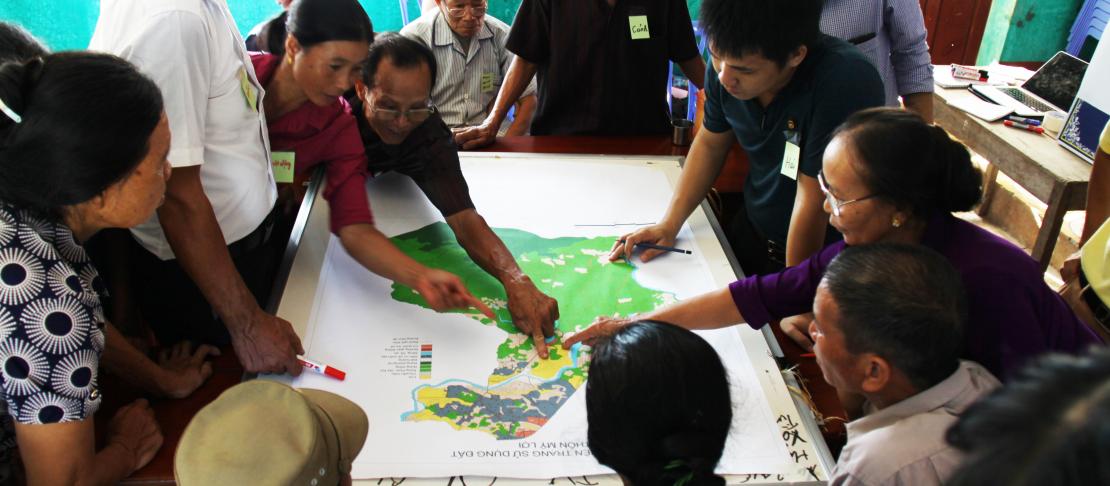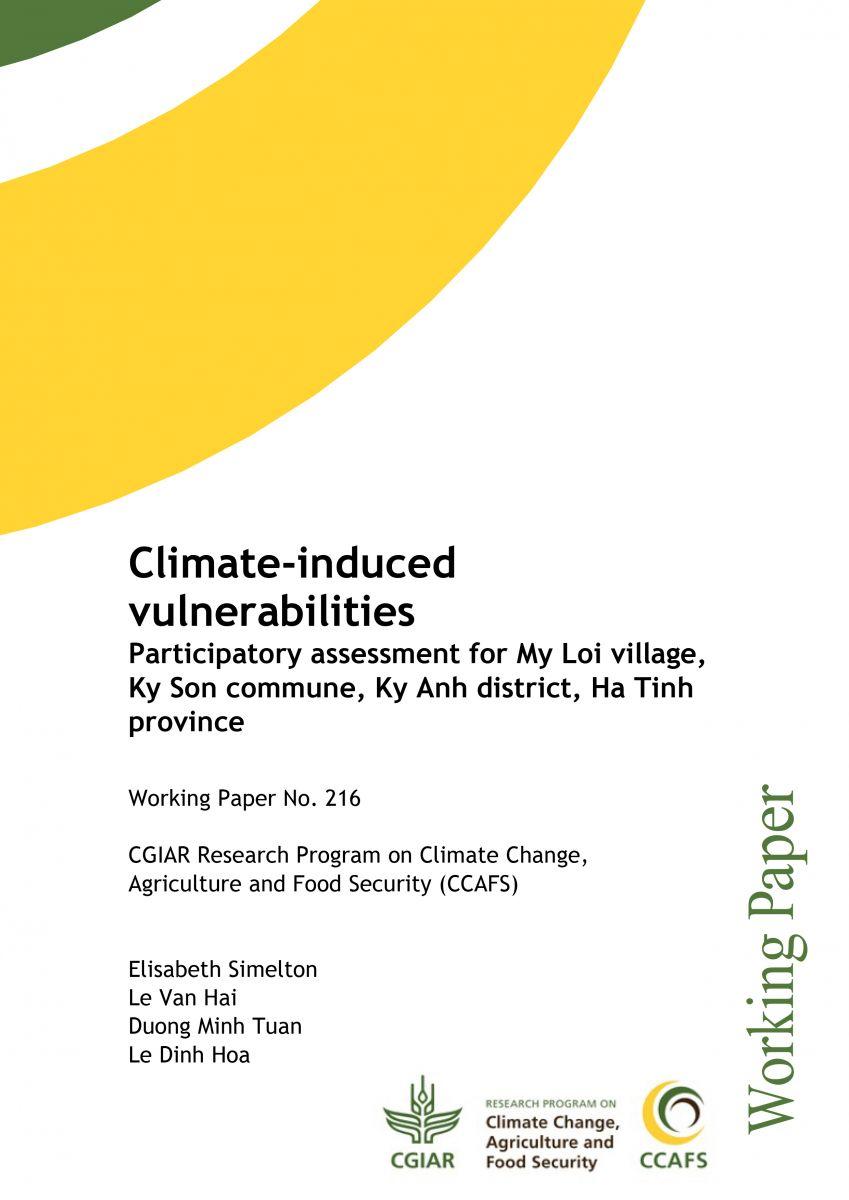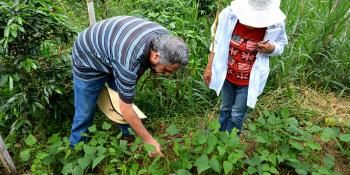Participatory vulnerability assessment towards effective climate-smart agriculture intervention

By documenting evidences of exposure, impacts and vulnerability to climate-related risks, future climate-smart agriculture interventions in My Loi Climate-Smart Village (CSV) will be more appropriate and effective.
My Loi village, one of the seven Climate-Smart Villages (CSVs) under the CGIAR Research Program on Climate Change, Agriculture and Food Security (CCAFS) in Southeast Asia, is highly prone to hazards caused by extreme climatic variabilities. In recent years, the community experienced flooding and drought that had caused major losses on crop production and livestock. Together with problems on natural resource management and food security which pose threats to farmers’ livelihoods, My Loi village needs interventions that could help local farmers improve their climate change resilience.
A working paper was published on the participatory assessment of climate-induced vulnerabilities conducted in My Loi village. The study was done to provide CCAFS and its partners the information that can be used in improving existing interventions and in formulating future projects for the site. The assessment is part of the CCAFS project titled Generating evidence base for upscaling local adaptation through Climate-Smart Agriculture. Led by the World Agroforestry Centre (ICRAF), the project aims to generate knowledge on how adoption, outscaling, and upscaling of climate-smart agriculture (CSA) can be facilitated through proof-of-concept sites established using participatory, farmer-centered, and community based tools and approaches.
Based on the focus group discussions, the three main and interacting challenges to agriculture livelihoods in My Loi village are weather, pest and disease, and prices. According to the study, the increasingly unpredictable extreme weather events, especially flooding and cold spells, caused damage to crops, livestock, infrastructure, and houses. As for pests and diseases, peanut and cassava have these problems after flooding and long hot spells, and were difficult to control. Moreover, input prices for fertilizer and pesticides are high, and pays for outputs are low, especially if middlemen are involved. After natural disasters, soil erosion causes crop failures and obstructs production – leading to income losses. Using participatory approaches, the vulnerability assessment report used synthesised information collected from focus group discussions, climate land use adaptation planning meetings, key informant interviews, and household interviews.
The study also looked into the climate change perceptions and coping mechanism of smallholder farmers in My Loi village. Results show that there is an increase in general awareness of climate change among the respondents. The farmers also tend to remember years with unusual impacts from weather events. The study also identified a number of coping and adaptation mechanisms before, during and after different extreme events.
The report provides recommendations for potential CSA interventions following CCAFS official CSA indicators such as weather, water, energy, knowledge, pest and soil nutrient, and those discussed and added for CCAFS Southeast Asia such as nutrition, gender and market-smartness. Some of the potential interventions are: (i) the development of agro-climate information for different zones together with farmers and extension workers; (ii) the promotion of integrated farming systems with permanent mixed tree-crop stands (agroforestry); and (iii) the organization of farmer learning groups for sharing adaptation practices, among others.
Further recommendations also include the consideration of land-intensive farming options to build on the competitive advantage of smallholder farmers. These may include diversification into niche agriculture to compete with large-scale farming and higher-value products.
Download the working paper: Simelton E et al. 2017. Climate-induced vulnerabilities: Participatory assessment for My Loi village, Ky Son commune, Ky Anh district, Ha Tinh province. CCAFS Working Paper no. 216. Wageningen, The Netherlands: CGIAR Research Program on Climate Change, Agriculture and Food Security (CCAFS).
Read more:
- “Please share!” – Social learning leads to greater adoption of climate-smart agriculture
- Models for a better future: Climate-smart agriculture is spreading
- Investing in climate-smart agriculture: Identifying priorities for Vietnam
Eisen Bernardo is the Senior Communication Specialist of CCAFS Southeast Asia.




